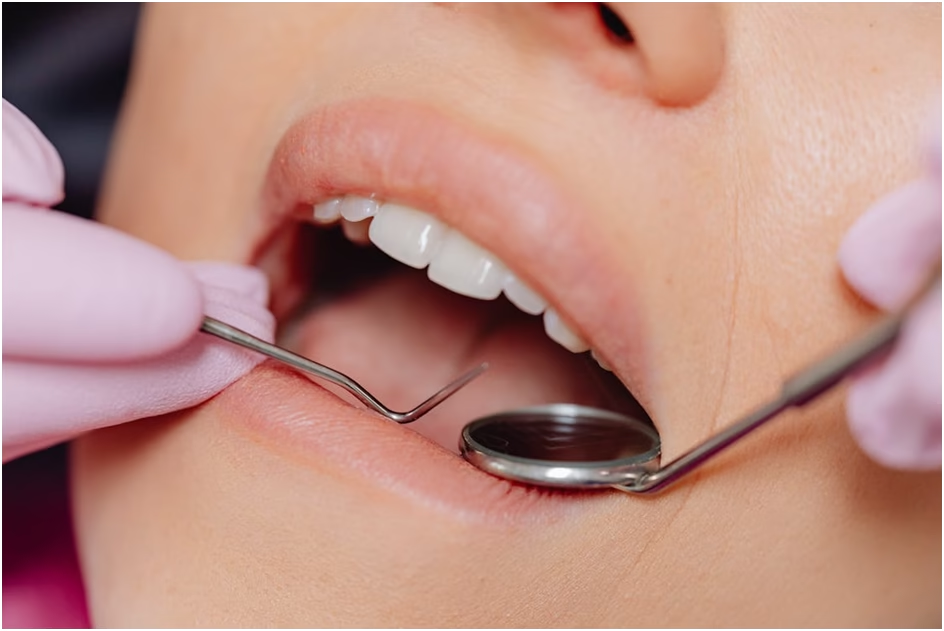What is your number one goal when it comes to dental care?
To have teeth that are healthy for as long as you live.
Well, in a perfect world, that would be the obvious goal. But, in reality, most people view dental care incorrectly, by thinking about it only in the present and reacting to what has already happened rather than proactively preventing issues.
A study of oral health estimates that 3.5 billion people around the world have oral diseases. Modern dental care is, in many cases, more about prevention rather than restoration and yet that is not the message that is being promulgated.
The sad fact is that the dental industry has a huge number of clients and patients that come in only when a tooth is in pain or is broken. This is at least partly due to the fact that it is not obvious until it is a real problem.
What needs to be done in terms of treatment at this stage becomes not only more difficult but a whole lot more expensive.
The vast majority of dental issues can be dealt with before they occur by simply going to the dentist and this is the basis for preventive dentistry.
In this article we will be looking at all the following aspects to dental prevention.
- What preventive dentistry is and how it works
- The benefits of prevention
- The actual treatments that have been proven to work
- The basics of putting a preventive plan together
In short
Preventive dentistry has been around for a long time and, simply put, it is dental care that keeps issues from occurring in the first place.
The focus is on dental visits, check-ups, cleanings and early intervention to keep a patient’s teeth, gums and mouth in good order. There is a lot more to it of course, but this is a short article and the long version can be found in various sources.
Think of preventive dentistry as similar to maintaining a car engine. You do not wait for the engine to seize up, before you change the oil and that is basically the same as going to a dental office before the damage has occurred.
Something that is generally not known is the effect that dental care has on general well-being and health. The connection between the mouth and the body is so close, that any lack of oral health and that will be reflected in the rest of the body and this is borne out by numerous studies that indicate the mouth to be connected to diseases like heart problems, diabetes and Alzheimer’s. So, when you take care of your teeth and gums, you are effectively also taking care of your whole body.
There are three main reasons why prevention is so important and they are, of course, all linked to each other.
Saving money
It is estimated that each dollar that is spent on prevention will save at least $50 in the future when it comes to restorative and even more to emergency treatments.
Saving time and pain
Nobody actually likes the dentist and even less does anyone like spending long hours in the chair having work done. So by catching up early or preventing problems in the first place, the trips to the dentist are reduced and, for the most part, only involve cleanings.
Saving teeth and improving life
It goes without saying that by having a good routine of regular dental visits and taking good care of your teeth at home you will have a very good chance to keep teeth for life and that is the single biggest advantage of all. You should understand that the main reason why old people lose their teeth is a lack of good and regular dental care.
It has been calculated that only 50% of Americans visit the dentist twice a year. A survey conducted in the U.S. showed that more than 1 in 2 dental care patients do not see the dentist that often.
So, in order to know what to focus on, let us look at the treatments that have been proven to work in a preventive capacity.
Professional cleanings
Professional cleanings are the basis of dental prevention and the reason is simple. You can brush as often and as well as you can, but you can never get your teeth as clean as a dental hygienist. So, twice a year of thorough cleaning by a professional, will remove all plaque and tartar and give you a head start over self care alone.
Dental sealants
The use of dental sealants is a relatively new and revolutionary way of preventing cavities. Sealants are a special protective coating that is applied to the chewing surfaces of the teeth and, as the result of numerous studies, have been shown to be 80% effective in preventing decay in the teeth that have had them applied.
Fluoride treatments
Fluoride treatments have been around for a long time and their purpose is to strengthen the tooth enamel and make it much more resistant to decay. There is some fluoride in toothpaste and even drinking water, but a professional fluoride treatment is much more effective and provides an extra boost for those who are at risk.
During a professional application, a highly concentrated gel, foam, or varnish is applied directly to the teeth for a few minutes. According to this experienced cosmetic dentist in Ballwin, this process allows the minerals to integrate into the enamel, repairing microscopic weak spots before they develop into full cavities. It is a quick and painless preventive measure that significantly enhances long-term dental resilience for both children and adults.
Regular dental examinations
A professional examination of the teeth at least twice a year will allow the dentist to spot early signs of decay, gum disease and other problems that you, by yourself, may not see.
There are three very simple things that you can do to have good preventive oral hygiene.
Regular dental check-ups
Go to your dentist at least twice a year. That is the main thing to do when it comes to preventing all the things that you do not want to happen with your teeth.
Brush twice a day for two minutes
Brush your teeth for two minutes two times a day. Also, use a soft-bristled brush and fluoride toothpaste and do not forget to make sure that you cover all the surfaces of the teeth, including the gum line.
Floss daily
Floss is the best way to get in between the teeth and remove plaque and food particles that your toothbrush can never get to. Floss at least once a day.
Watch your diet
What you eat and drink also has an impact on your teeth and they need protection from decay and erosion. Limit sugar and anything with a high acidic content and drink plenty of water.
The obvious questions that may pop up are as follows.
Cost
Cost is one of the more popular excuses for not having your teeth checked. But that is not a reason, since, as a rule, preventive visits and procedures, including cleanings are covered at 100% by most dental insurance companies and, when there is no insurance, most dental clinics have payment plans and the like.
Fear and anxiety
It is understandable to be afraid of the dentist but times have changed and it is a very different experience now than it used to be in the past. Plus, any dental practice will be more than happy to discuss your concerns and make sure that you are as comfortable as can be. There are also various forms of sedation to make it even easier.
Time
The excuse of being too busy, is also not really an excuse as twice a year is not a huge demand on the part of any clinic and appointments are usually under an hour.
So, to round off this article, it is important to note that preventive dentistry is the only dental practice that can guarantee that you will have teeth that last you a lifetime.
There are billions of people in the world that have oral diseases that are, in many cases, preventable and, while it is never too late to start, the earlier you put a routine in place, the better off you are.
So the time to start your preventive care is now. Book a dental visit and start your routine and your future self will be thanking you.






